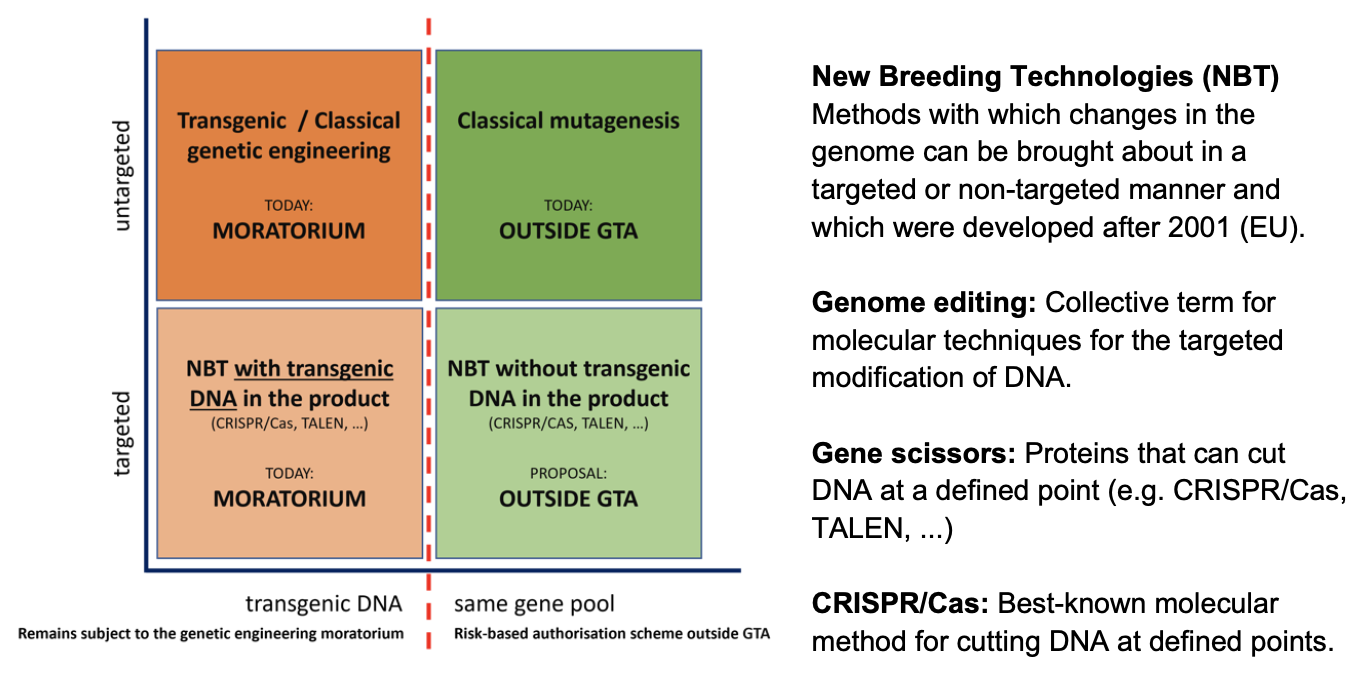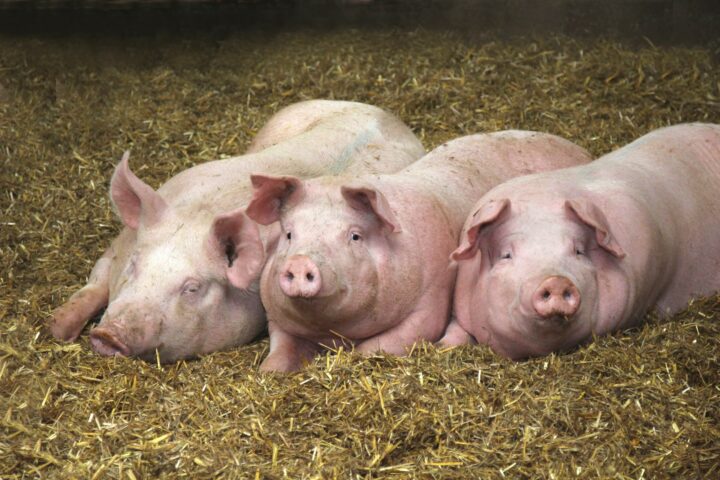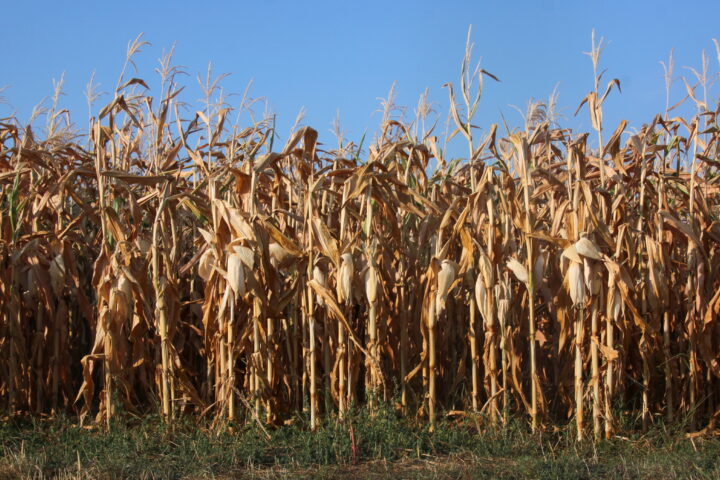
New Breeding Technologies (NBT)
Swiss agriculture is under pressure. Due to the changing climatic conditions and increasing weather extremes, the cultivation of many crops has become more demanding. Nevertheless, consumers, processors and trade expect regional and high-quality products at affordable prices. And farmers have fewer and fewer options to protect their crops efficiently.
Monday, March 21, 2022
The new breeding technologies (NBT) play a central role in this regard. You can make an important contribution to sustainable and productive agriculture in the future. But every further development – even without genetic material beyond the species limit (transgenic DNA) – is (also) blocked today by the genetic engineering moratorium.
Classical mutagenesis has been a proven breeding method for many decades. It causes random changes in a plant's genetic material through radioactive irradiation or the use of chemicals. Their products have no negative effects on humans, animals or the environment and are not considered genetically modified organisms. They are also grown in organic farming. In Switzerland, many varieties are grown on the fields whose properties have been bred through classical mutagenesis. Practically every pasta wheat is based on such mutation breeding.
NBT without transgenic DNA are a gentler and more precise advancement of classical mutagenesis. It is thus possible to make existing varieties more resistant to heat, fungi or pests through targeted, minor changes in the genome. Genes from the same gene pool (cisgene = within the species boundary) can also be transferred with NBT much more efficiently than is possible with conventional breeding. A well-known problem in Switzerland is late blight, for example. Common potato varieties could now be immunized against this fungal disease by NBT with resistance genes from their own gene pool. The same applies to well-known grape varieties that could be made resistant to powdery mildew. A list of ten applications of new breeding technologies for Switzerland can be found on swiss-food.ch. In this way, it is possible to respond to major challenges in cultivation and at the same time reduce the use of pesticides in Switzerland.
The distinction between transgenic DNA and DNA from the same gene pool is widely used for regulation around the world. New breeding technologies without transgenic genetic material have little in common with classic genetic engineering. They trigger changes in the genome (mutation) or introduce species-specific genes. Such changes are also possible through nature or through classical breeding, but more randomly and therefore less frequently.

Sources
Related articles

What’s Really in Your Shopping Basket
Genetic engineering in our shopping basket? Yes – and much more often than we think. Whether it’s pasta, bread or vegetables: many of the everyday products we consume come from mutation breeding, which involves altering the genome and is considered safe. It’s high time to debunk the common myths.

Genomic breeding methods are not given a chance to prove themselves
Modern genomic breeding methods are legally classified as genetic engineering – and are therefore still effectively blocked. Yet we have been eating genetically modified plants for decades, just under the label of “classical mutagenesis.” The new, more precise techniques are regulated more strictly than the old ones, even though they are considered safer from a scientific perspective. A contradiction that urgently needs to be corrected. The EU is setting a good example.

No Pig Business: Why Testicle-Free Boars Are a Clear Win for Animal Welfare
New breeding methods are opening up new possibilities in both plant and animal breeding. They allow targeted genetic changes that can make animals more resilient, adaptable, and healthier.

Stagnation instead of progress: Switzerland risks falling behind in new breeding techniques
An overview article in Schweizer Bauer shows how much the new breeding methods are preoccupying farming circles. Once the consultation process on the federal law has been completed, a bill is expected – then it will become clear whether there is actually the political will to approve it.

